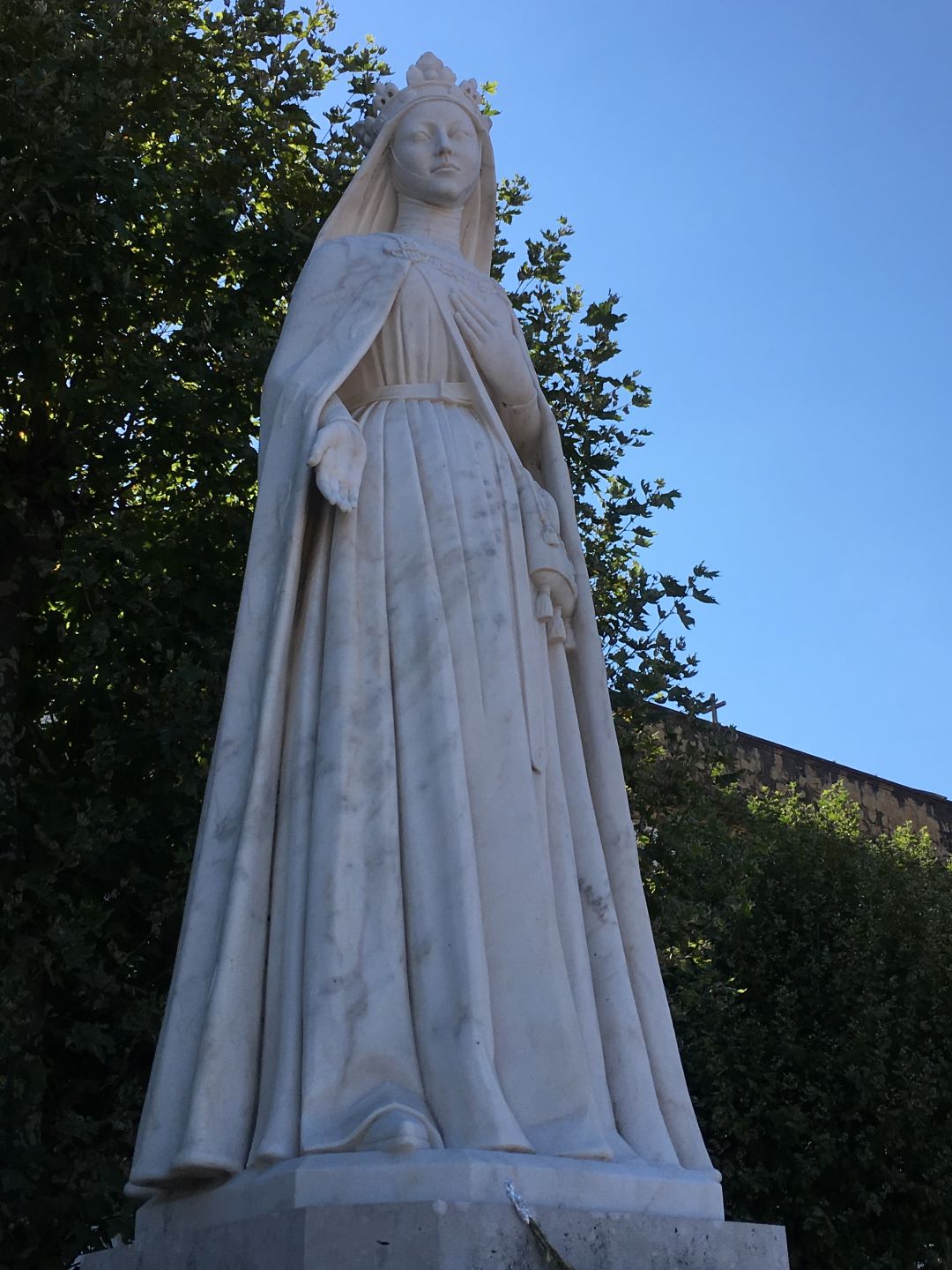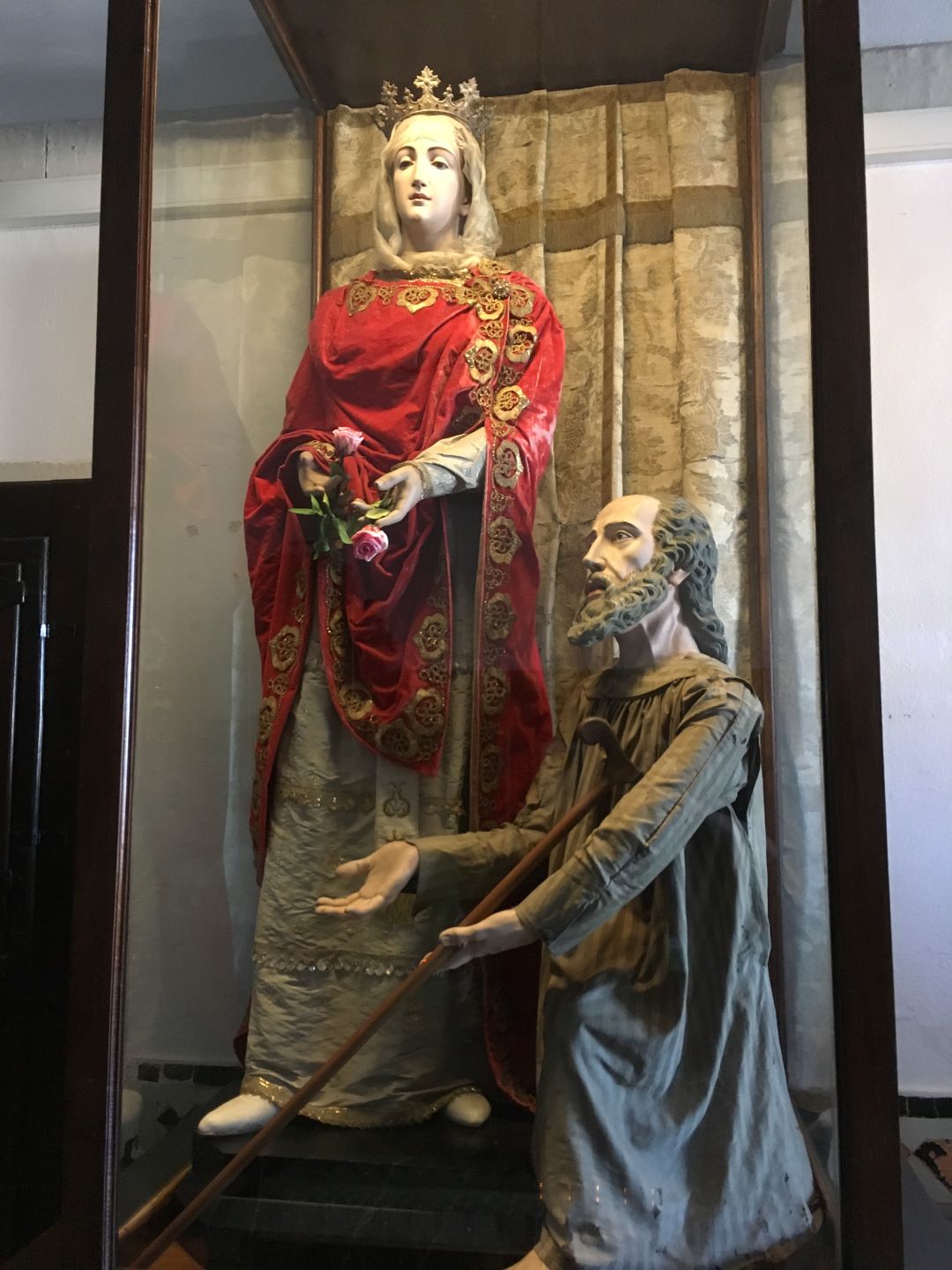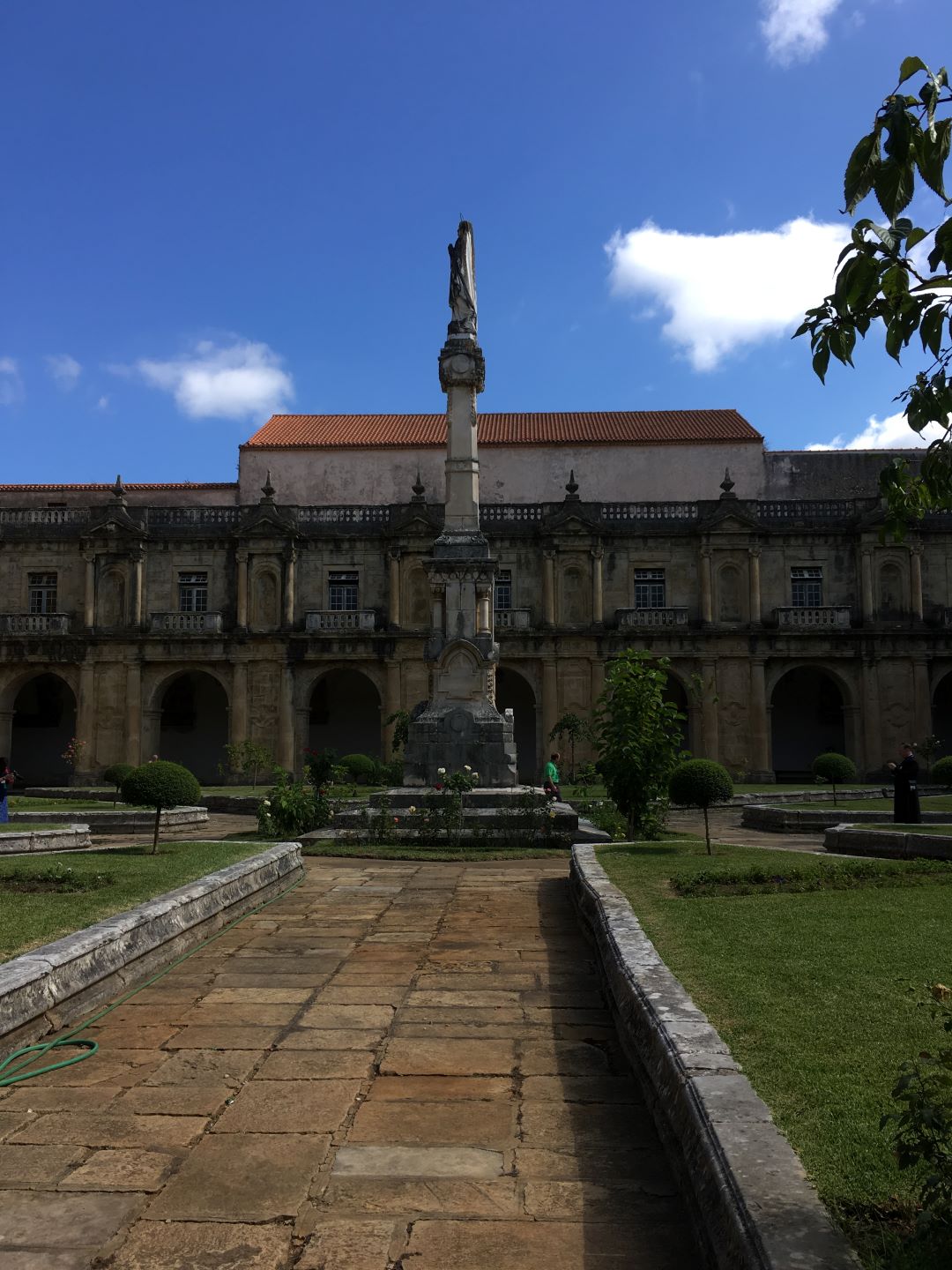Seventh Sunday after Pentecost
Dear Friends in Christ,
Welcome to our weekly Sunday update. This Sunday (July 7, 2024) is the Seventh Sunday after Pentecost. In this Sunday’s Gospel reading, Jesus issues a warning against those who falsely don the guise of religion: “Beware of false prophets, who come to you in the clothing of sheep, but inwardly they are ravening wolves. By their fruits you shall know them” (Matthew 7:15-16). It is a warning that rings all too true in a sadly debased age when even some Catholics slander and persecute their fellow Catholics for attempting to live according to their shared Faith. “Even so every good tree bringeth forth good fruit, and the evil tree bringeth forth evil fruit” (Matthew 7:17). “Wherefore by their fruits you shall know them” (Matthew 7:20). Foremost among the good fruits are the corporal works of mercy: To feed the hungry, give drink to the thirsty, clothe the naked, shelter the homeless, visit those in prison, comfort the sick, and bury the dead. The feast day of St. Elizabeth of Portugal, who made such works of mercy her life’s work, will be celebrated Monday (July 8th). For more about the life of St. Elizabeth, see Saints and Special Observances below.
Calendar of Saints and Special Observances
Celebrations are those listed in the Roman Missal of 1962 or on the liturgical calendar of Our Lady of Guadalupe Seminary.
DAY, DATE – FEAST (CLASS)
Sunday, July 7 – Seventh Sunday after Pentecost (II)
Monday, July 8 – St. Elizabeth, Queen of Portugal, Widow (III)
Tuesday, July 9 – Feria (IV)
Wednesday, July 10 – Seven Holy Brothers, Sons of St. Felicitas: Ss. Januarius, Felix, Philippus, Silvanus, Alexander, Vitalis and Martialis, Martyrs (III) [Ss. Rufina and Secunda, Virgins and Martyrs (III)]
Thursday, July 11 – Feria (IV) [Commemoration of St. Pius I, Pope and Martyr]
Friday, July 12 – St. John Gualbert, OSB, Abbot (III) [Commemoration of Ss. Nabor and Felix, Martyrs]
Saturday, July 13 – Feria (IV) [Our Lady on Saturday (IV)]
Note: The liturgical celebration of St. Cyril, Bishop and Confessor, and St. Methodius, Bishop and Confessor, which usually takes place on July 7th in accordance with the traditional Roman Calendar, is displaced this year by the Seventh Sunday after Pentecost.
Seventh Sunday after Pentecost
The links provided below can be used to download printable copies of the Proper Prayers for Mass in the Extraordinary Form for the Seventh Sunday after Pentecost with either English or Spanish translation. The English version includes a commentary from In Conversation with God by Fr. Francis Fernandez-Carvajal. We also offer a link to a New Liturgical Movement article by Dr. Michael P. Foley on “Fruit, Free Will, and Providence: The Seventh Sunday after Pentecost Collect.”
Latin Mass Schedule: Seventh Sunday after Pentecost (July 7, 2024)
Charlotte Area Latin Masses
- 11:30 a.m., Saint Thomas Aquinas (followed by First Sunday Potluck: see announcement below)
- 12:30 p.m., Saint Ann
Other Diocese of Charlotte Latin Masses
- 8:30 a.m., Saint John the Baptist (Tryon)
- 9:00 a.m., Our Lady of the Angels (Marion)
- 1:00 p.m., Church of the Epiphany (Blowing Rock)
- 1:00 p.m., Our Lady of Grace (Greensboro)
Diocese of Charleston Latin Masses
- 12:00 p.m., Prince of Peace (Taylors SC)
- 1:00 p.m., Our Lady of the Lake (Chapin SC)
Latin Mass Schedule: Weekdays
Charlotte Area Latin Masses
- Saint Ann – Wednesday, 6:00 p.m.
- Saint Thomas Aquinas – Thursday, 7:00 p.m.
- Saint Ann – Friday, 7:00 a.m.
Other Diocese of Charlotte Latin Masses
- Our Lady of the Mountains (Highlands) – Tuesday, 9:30 a.m.
- St. John the Baptist (Tryon) – Friday, 8:30 a.m.
- Church of the Epiphany (Blowing Rock) – Friday, 9:30 a.m.
Diocese of Charleston Latin Masses
- Prince of Peace (Taylors SC) – Tuesday-Thursday, 12:00 p.m.
Note: Travelers are advised to contact parish offices to confirm weekday and Saturday Mass times, since local schedules are sometimes subject to change without notice, especially on or around holidays, holy days of obligation and other special feast days.
Announcements
First Sunday Potluck at Saint Thomas Aquinas:
This Sunday (July 7th) will be First Sunday Food and Fellowship at
Saint Thomas Aquinas following the regularly scheduled 11:30 a.m. Latin
Mass. All are invited to come break bread and have a good time!
Sacred Art Classes by Deacon Joseph Yellico: For three Thursdays in July at St. Ann Parish, Deacon Joseph Yellico will be teaching a course entitled “Sacred Art: The Church’s expression of Truth, Goodness and Beauty.” The course will cover various mediums of sacred art, ranging from painting to architecture, and will also address the doctrine, rich symbolism and philosophical thought involved. The first session will begin in Classroom 2 on Thursday, July 11th, at 7:00 p.m. The following sessions will take place on the 18th and 25th of the month, beginning at the same time. Feel free to come explore with Deacon Yellico the vast treasury of the Church's artwork.
Traditional Silent Retreat with Fr. Lawrence Carney: From Friday, July 19th, through Sunday, July 21st, the Legion of Mary in Raleigh will sponsor a silent retreat led by Fr. Lawrence Carney at the Catholic Conference Center in nearby Hickory. The retreat will be open to both men and women 18 years of age or older. Fr. Carney, a priest of the Diocese of Wichita who visited St. Thomas Aquinas Parish last year, has written two books on the Holy Face devotion published by TAN Books: Preparation for Total Consecration to the Holy Face of Jesus: How God Draws the Soul into the Purgative, Illuminative, and Unitive Ways and Secret of the Holy Face: The Devotion Destined to Save Society.
The theme of the retreat will be Total Consecration to the Holy Face and Growth in the Interior Life. A Traditional Latin Mass will be offered during the retreat. The cost is $300 per participant for double occupancy ($330 for single occupancy). To register contact Tammy Huffman by email at Luvr1mary@gmail.com or by telephone at (919) 744-6998. Additional information about the retreat and the registration form are available here.
Holy Face Devotions
Prayers of Reparation to the Holy Face of Jesus are offered each week at the following churches on the indicated days:
- St. James (Concord) – Monday, 10-10:30 a.m. (in the cry room)
- St. Mark – Monday, 5:00 p.m.
- St. Thomas Aquinas – Tuesday, 6:00 a.m.
- St. Ann – Tuesday, 7:30 a.m. (following 7:00 a.m. Novus Ordo Mass)
- St. Michael the Archangel (Gastonia) – Tuesday, 9:00 a.m.
- Holy Spirit (Denver) – Tuesday, 10-11:00 a.m. (following the 9:15 a.m. Novus Ordo Mass)
Latin Mass and Liturgical News
- No Mercy for Latin Mass Lovers? is the question posed in The Catholic Thing by Msgr. Charles Fink, a convert to Catholicism, after 30 years as a priest. [No Mercy for Latin Mass Lovers?]
- The rise of South Carolina’s Catholic population, an article by Gigi Duncan for CNA, takes note of the growing number of Catholics in the other Carolina, and features a photo of Prince of Peace Church, the Latin Mass parish in Taylors SC. [The rise of South Carolina’s Catholic population]
- The odd couple, by Jeffrey Meyers for The Critic, takes a look at the long-lasting friendship between two preeminent, but eminently different, 20th century Catholic authors, Evelyn Waugh and Graham Greene. [The odd couple]
- Sister Wilhelmina’s Order to Expand to England — at Abbey Founded by St. Thomas More’s Great-Great-Grandaughter details the joyful news that the Benedictines of Mary, Queen of the Apostles, a religious order of nuns in Missouri who follow the Latin Mass exclusively, have been invited to establish a house in Staffordshire, England, at an Abbey founded by a decedent of St. Thomas More. [Sister Wilhemina’s Order to Expand to England]
- Return to Our Lady: Eighth Reflection is the latest offering from Cardinal Raymond Leo Burke for those participating in his Nine-Month Novena to Our Lady of Guadalupe on behalf of the Church and the world. Cardinal Burke provides a video presentation of his reflection, together with the text of his message, the prayer to be recited daily by participants and links to valuable background material regarding St. Juan Diego’s miraculous encounter with Our Lady in 1531. [Reflection Eight | June 25, 2024]
- Revisiting the Date of the Visitation by Dr. Michael P. Foley, in New Liturgical Movement, investigates the appropriateness of relocating the date of the Feast of the Visitation (celebrated this past Tuesday according to the 1962 Roman Calendar) in the revised (1970) liturgical calendar. [Revisiting the Date of the Visitation]
Saints and Special Observances
Saint Elizabeth, Queen of Portugal is also known as Elizabeth (or Isabella) of Aragon, since she was born in the Spanish kingdom in the year 1271. The daughter of King Peter (Pedro) III of Aragon and Constance of Sicily, she was married to King Denis of Portugal around the age of ten. He was about ten years older. The two children resulting from the marriage were Alphonso IV, who succeeded his father as king of Portugal, and Constance of Portugal, queen of Castile.
Elizabeth was known as the “Peacemaker” in her lifetime because of the aptitude for diplomacy she displayed in resolving disputes between factions in both the Aragonese and Portuguese realms. Sadly, she was unable to find peace and happiness in her marriage to King Denis whose interest in other women produced half a dozen illegitimate children during a reign that spanned more than 46 years. Devoutly religious, Elizabeth sought solace in performing works of mercy and devoting herself to pious activities such as prayer and fasting.
While her husband won fame by promoting agricultural renewal, encouraging literary efforts in the Portuguese language and establishing the first university in Portugal, Elizabeth was known and loved throughout the nation for her generous donations to hospitals and orphanages. She also established a college for the purpose of training young women to be farmers. A frequent visitor in hospitals and asylums, she gave herself to the care of the worst cases wherever she went. Elizabeth was said to have cured the cancerous foot of a patient by kissing it after she had washed it over the woman’s objections.
The queen’s powers of diplomacy were put to the ultimate test when her son fell out with his father and sought to overthrow him. Elizabeth actually rode out between the battle lines drawn up by the two combatants and prevailed on her son to throw down his arms and ask his father’s forgiveness.
King Denis died in 1325, affording Elizabeth the opportunity to begin a new life within the monastic ranks of the Poor Clares, taking up residence as a tertiary member of the order in a house near the convent. Undertaking pilgrimages, she developed a following and was credited with performing miracles, including the restoration of sight to a blind child.
Called on once more to resolve a serious dispute – this time between her son and her son-in-law, the king of Castile – Elizabeth was exhausted by the journey she had to make to bring about peace between the disputants. Falling ill, she died on July 4, 1336. Memorialized by a shrine erected in Coimbra, Elizabeth was not canonized until 1625 when Pope Urban VIII declared her a saint in response to numerous miracles attributed to her intercession. Her feast day is the 8th of July, according to the traditional Roman Calendar.
Closing Commentary
In closing, we supplement the above article on Saint Elizabeth, Queen of Portugal, with an excerpt from the commentary on her feast day in The Liturgical Year of Dom Prosper Guéranger, OSB, followed by a link to the full text.
July 8 – Saint Elizabeth, Queen of Portugal
In the footsteps of Margaret of Scotland and of Clotilde of France, a third Queen comes to shed her brightness on the sacred cycle. Born at the southern extremity of Christendom, where it borders of Musselman lands, she was destined by the Holy Ghost to seal with peace the victories of Christ, and prepare the way for fresh conquests. The blessed name of Elizabeth, which for half a century had been rejoicing the world with its sweet perfume, was given to her, foretelling that this newborn child, as though attracted by the roses which fell from the mantle of her Thuringian aunt, was to cause these same heavenly flowers to blossom in Iberia.
There is a mysterious heirship among the saints of God. The same year in which one niece of Elizabeth of Thuringia was born in Spain, another, the Blessed Margaret of Hungary, took her flight to heaven. She had been consecrated to God from her mother’s womb, as a pledge for the salvation of her people, in the midst of terrible disasters; and the hopes so early centered in her were not frustrated. A short life of twenty-eight years spent in innocence and prayer, earned for her country the blessings of peace and civilization; and then Margaret bequeathed to our Saint of today the mission of continuing in another land the work of her holy predecessors.
The time had come for our Lord to shed a ray of His grace upon Spain. The thirteenth century was closing, leaving the world in a state of dismemberment and ruin. Weary of fighting for Christ, kings dismissed the Church from their councils, and selfishly kept aloof, preferring their own ambitious strifes to the common aspiration of the once great body of Christendom. Such a state of things was disastrous for the entire West; much more, then, for that noble country where the Crusade the multiplied kingdoms as so many outposts against the common enemy, the Moors. Unity of views and the sacrifice of all things to the great work of deliverance could alone maintain in the successors of Pelayo the spirit of the grand memories of yore. Unfortunately these princes, though heroes on the battlefield, had not sufficient strength of mind to lay aside their petty quarrels and take up the sacred duty entrusted to them by Providence. In vain did the Roman Pontiff strive to awaken them to the interests of their country and of the Christian name; these hearts, generous in other respects, were too stifled by miserable passions to heed his voice; and the Musselman looked on delightedly at these intestine strifes, which retarded his own defeat. Navarre, Castile, Aragon, and Portugal were not only at war with each other; but even within each of these kingdoms, father and son were at enmity, and brother disputed with brother, inch by inch, the heritage of his ancestors.
Who was to restore to Spain the still recent traditions of her Ferdinand III? Who was to gather again these dissentient wills into one, so as to make them a terror to the Saracen and a glory to Christ? James I of Aragon, who rivalled St. Ferdinand both in bravery and in conquests, had married Yoland, daughter of Andrew of Hungary; whereupon the cultus of the holy Duchess of Thuringia, whose brother-in-law he had thus become, was introduced beyond the Pyrenees; and the name of Elizabeth, changed in most into Isabel, became, as it were, a family jewel with which the Spanish princesses have loved to be adorned. The first to bear it was the daughter of James and Yoland, who married Philip III of France, successor of St. Louis; the second was the grand-daughter of the same James I, the Saint whom the Church honors today, and of whom the old king, with prophetic insight, loved to say, that she would surpass all the women of the race of Aragon.
[St. Elizabeth Queen of Portugal]
Saint Elizabeth of Portugal
Pictured is the Sanctuary of the Convent of Santa Clara a-Nova in Coimbra, Portugual, which holds the incorrupt remains of Saint Elizabeth of Portugal.




